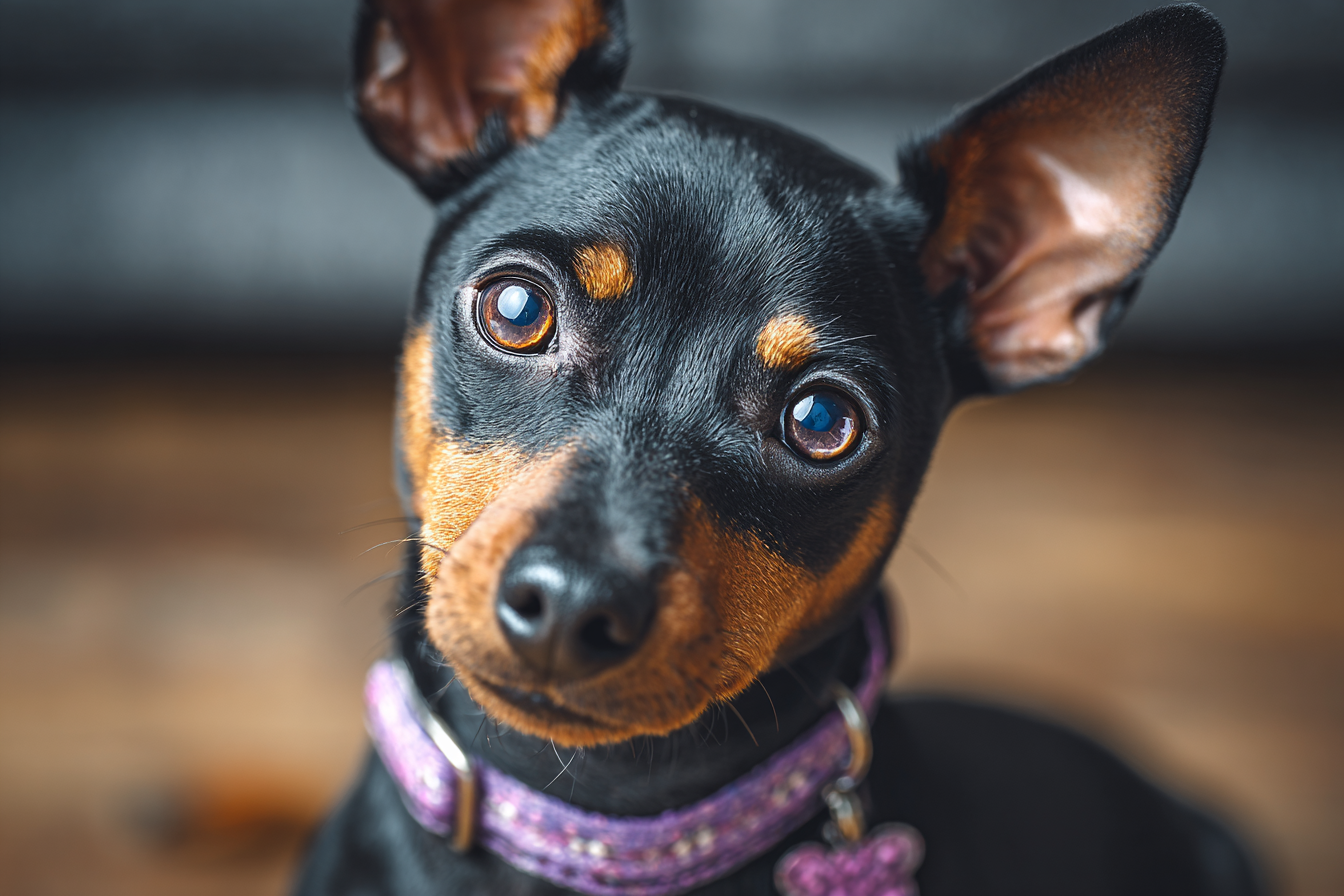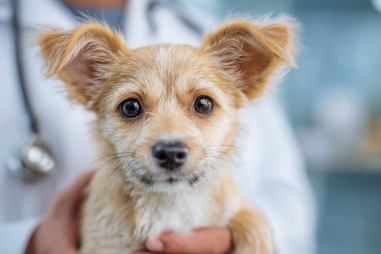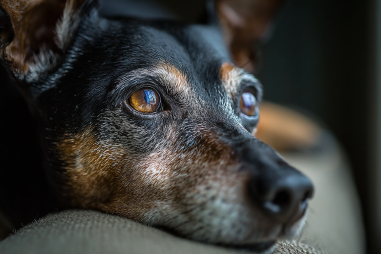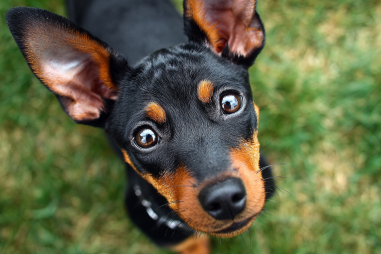Miniature Pinschers, often affectionately called “Min Pins,” are lively and spirited little dogs known for their bold personality and agility. Despite their small size, they’re packed with energy and confidence, which can sometimes manifest as behavioral challenges. Understanding common behavioral problems, their causes, and how to manage them can make living with a Miniature Pinscher a joyful experience for both owners and their furry friends. In this article, we’ll explore typical behavioral problems in Miniature Pinschers, what triggers them, and the best ways to prevent and manage these behaviors effectively.
Typical Behavioral Problems in Miniature Pinschers
Miniature Pinschers are intelligent and energetic, but their nature can lead to several common behavioral issues if not addressed early. Here are some challenges many Min Pin owners face:
- Barking Excessively: Min Pins have a loud, sharp bark that they often use to alert their owners or to seek attention. This can sometimes turn excessive, leading to noise complaints or frustration.
- Separation Anxiety: Due to their strong bond with their owners, Min Pins may develop anxiety when left alone, resulting in destructive behavior or persistent whining.
- Resource Guarding: Some Miniature Pinschers can become possessive over food, toys, or even their favorite human’s attention.
- Escaping Tendencies: Their curious and adventurous spirit means they may try to escape fenced areas or slip through open doors.
- Aggression Towards Other Dogs: Despite their size, Min Pins can sometimes display aggression or dominance, especially towards unfamiliar dogs.
- Hyperactivity and Impulsivity: Without proper exercise and mental stimulation, they can become overly hyperactive and exhibit impulsive behavior.
Causes and Triggers
Understanding why a Miniature Pinscher might develop behavioral problems is key to addressing them appropriately. Several factors contribute to these issues:
- Lack of socialization: Min Pins that are not socialized properly as puppies can become fearful or aggressive around unfamiliar people and animals.
- Insufficient exercise: These dogs have high energy levels and need regular physical and mental stimulation to avoid boredom, which can lead to destructive behavior.
- Inconsistent training: Without clear boundaries and consistent rules, Miniature Pinschers may develop habits such as excessive barking or resource guarding.
- Genetic predisposition: Some tendencies, such as alert barking or territorial behavior, are partly inherited and reflect the breed’s natural guarding instincts.
- Environmental stress: Changes in the household routine, loud noises, or lack of a safe space can trigger anxiety-related behaviors.
Preventive Measures
The best way to manage behavioral problems is to prevent them from developing in the first place. Here are some practical preventive measures for Miniature Pinscher owners:
- Early socialization: Introduce your Min Pin to a variety of people, animals, sounds, and environments from a young age. This helps them grow into confident and well-rounded adults.
- Consistent training: Use positive reinforcement techniques to teach basic commands and appropriate behaviors. Establish house rules and stick to them to reduce confusion.
- Regular exercise: Provide daily walks, play sessions, and mental challenges such as puzzle toys or obedience training. This helps expend energy and prevents boredom.
- Safe environment: Ensure your home and yard are secure to prevent escapes. Provide a designated, comfortable space where your dog can relax.
- Routine and structure: Min Pins thrive on predictable schedules for feeding, walking, and rest, which help reduce anxiety and stress.
Behavior Modification Techniques
When behavioral problems do arise, there are several effective techniques to help modify unwanted actions:
- Desensitization and counter-conditioning: Gradually expose your dog to triggers of fear or aggression in controlled settings, pairing the exposure with positive experiences like treats or praise.
- Redirecting attention: When your Min Pin starts barking excessively or acting out, redirect their focus to a task or toy, rewarding calm behavior.
- Use of commands: Teach strong recall and “quiet” commands to manage barking and hyperactivity.
- Time-outs: If your dog displays resource guarding or aggression, calmly remove them from the situation to prevent reinforcement of negative behaviors.
- Positive reinforcement: Reward good behavior consistently to encourage repeat actions, while avoiding punishment that can increase fear or aggression.
- Structure exercise: Incorporate obedience drills, scent games, and agility activities to challenge their mind and body simultaneously.
When to Consult a Professional Trainer
While many behavioral problems can be managed at home, some situations warrant the assistance of a qualified professional. Consider seeking help when:
- Written or verbal training methods fail to improve the dog’s behavior after consistent application.
- The dog shows signs of severe anxiety, aggression, or destructive tendencies that pose a risk to itself or others.
- Behavioral issues interfere significantly with daily life or the dog’s well-being.
- You are unsure how to safely and effectively address the problem behavior.
Professional dog trainers or behaviorists can develop tailored plans that account for your Min Pin’s temperament and specific challenges, offering hands-on guidance and support.
Real-Life Examples and Solutions
To better understand how to manage Miniature Pinscher behavioral problems, here are some examples and how owners successfully addressed them:
Excessive Barking at the Doorbell
One owner found their Miniature Pinscher barking loudly and incessantly whenever someone rang the doorbell. To address this, they began desensitizing their dog by repeatedly ringing the doorbell without visitors arriving, rewarding calm behavior. They combined this with teaching the “quiet” command, which the dog learned through praise and treats. Eventually, the barking decreased significantly, and the dog displayed calmer behavior when the doorbell rang.
Destructive Chewing Due to Separation Anxiety
A Min Pin owner noticed their dog chewing on furniture when left alone, accompanied by whining and pacing. The owner implemented gradual desensitization by leaving the dog alone for short periods, slowly increasing the time. Providing stimulating toys, such as Kongs filled with treats, helped keep the dog occupied. Over time, the dog grew more comfortable being alone, and the destructive behavior diminished.
Resource Guarding Over Toys
Another owner dealt with resource guarding where their Miniature Pinscher growled when approached while chewing toys. They worked with a trainer who taught the dog to “trade” toys for treats, associating the approach of humans with positive experiences. This approach transformed the dog’s guarding into trusting behavior, allowing gentle handling around toys.
Aggression Toward Other Dogs on Walks
A Miniature Pinscher showed aggression toward other dogs encountered during walks. The owner utilized positive reinforcement to reward calm and non-reactive behavior at a distance, gradually decreasing the space between their dog and other dogs as tolerance improved. Adding regular socialization sessions under controlled conditions helped reduce the dog’s defensive reactions over time.
These examples underscore the importance of patience, consistency, and positive reinforcement in managing Miniature Pinscher behaviors effectively.
Living in Harmony With Your Miniature Pinscher
Miniature Pinschers are loving and devoted companions with a unique personality that can enrich your life. Although they pose some behavioral challenges due to their spirited nature, understanding these common issues and proactively managing them fosters a strong bond between you and your dog. Early socialization, consistent training, plenty of exercise, and mental engagement build the foundation for a well-behaved and happy Min Pin. When challenges arise, a calm and informed approach—sometimes with professional guidance—ensures that these feisty little dogs remain the enjoyable, energetic pets you cherish.







